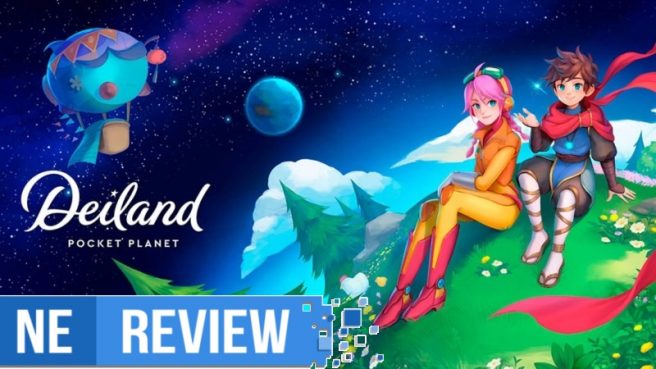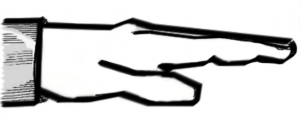[Review] Deiland: Pocket Planet Edition
System: Switch
Release date: April 15, 2021
Developer: Chibig
Publisher: Chibig
Summer in Mara was one of the more recent games that took me by surprise in terms of how much I enjoyed it, as I really love the sense of serenity it offers with a small but playful map that gives just enough to keep things consistently fun – especially for the explorative types. Though Chibig is no stranger to game development, it was the first of their portfolio to hit consoles, and while the Switch version had a few quirks, it still retained what was most important without having to sacrifice much outside of some visual quality. Deiland may be new to some, but the game has technically been out since Chibig brought it to mobile in 2016. Deiland: Pocket Planet Edition on Switch now marks the third time it has been released, but as someone who’s played it briefly on mobile and then on PC just before the Switch version for the purposes of this review, this would also mark the third time Deiland has simply been… Deiland, with little between releases to feel like a sizeable update or enhancement from prior SKUs.
On the surface you can immediately tell Deiland sets itself apart from the rest of games within the simulation genre by also offering a very light RPG experience that sort of accentuates the entire feel, even if it is as simple as simple can be. However, more than anything it’s the quite literal world view you have of your tiny planet that gives it this sort of Super Mario Galaxy charm with a rotational axis that lets your character, Arco, a prince, go all around it to harvest and defend as necessary. Seeing as this is your new home with Arco having just landed here with little to no memory of where he came from, you’ll end up doing what you can to survive, but Deiland, much like Chibig Studio’s other works, is a serene experience that never really asks for much, so the term survival sounds worse than it actually is and is really just there for narrative purposes.
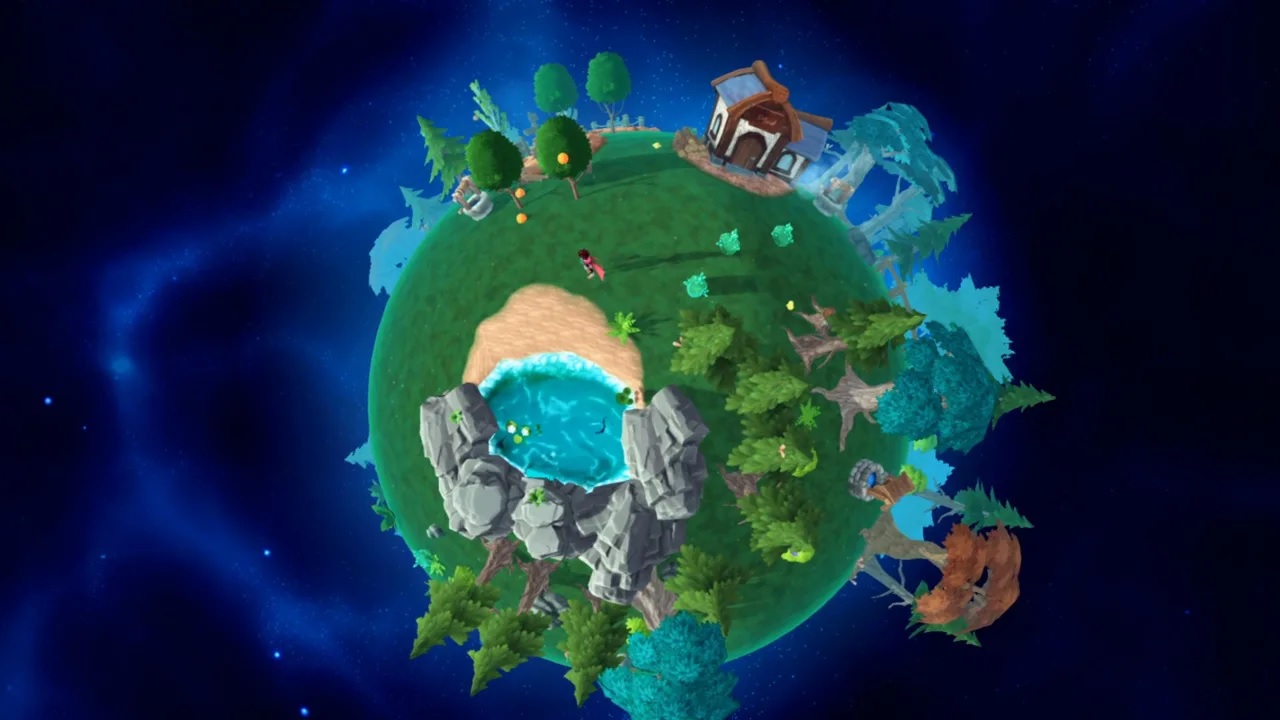
Days and seasons technically pass with a day and night cycle, but you can go to bed typically whenever you’d like, as it’s mainly meant to help recover stamina once it’s been fully depleted. Even a lot of the cultivation and things you end up planting can be done after a set amount of time with a meter that accompanies the icon to give a visual representation of how much time you can expect will be needed.
Those familiar with Summer in Mara will notice a similar user interface that makes for seamless crafting and intuitive, simplistic design that’s easy to navigate menus and categories especially for the casual player that complements the calming nature of Deiland’s gameplay and vibe, much like Summer in Mara did. What Chibig does in this regard is immensely sensible and I wish I would see menus like this more often in other titles from other studios.
Because of the light RPG elements, you will need to be to defend your land, though destruction is kept to a minimal as you go throughout your small planet to find the few enemies that sporadically spawn from time to time, eliminating them by just hitting them with whatever you can hold. Everything more or less does the same damage, but most increases are tied to your levels which go up as your experience grows from the tasks you complete. Every time you go to bed for the day, that’s when your experience points that you’ve gathered for the day will carry over and either take you to the next level or not for the following morning, so while it’s not necessary to sleep right away, it’s something to keep in mind and do every once in a while.
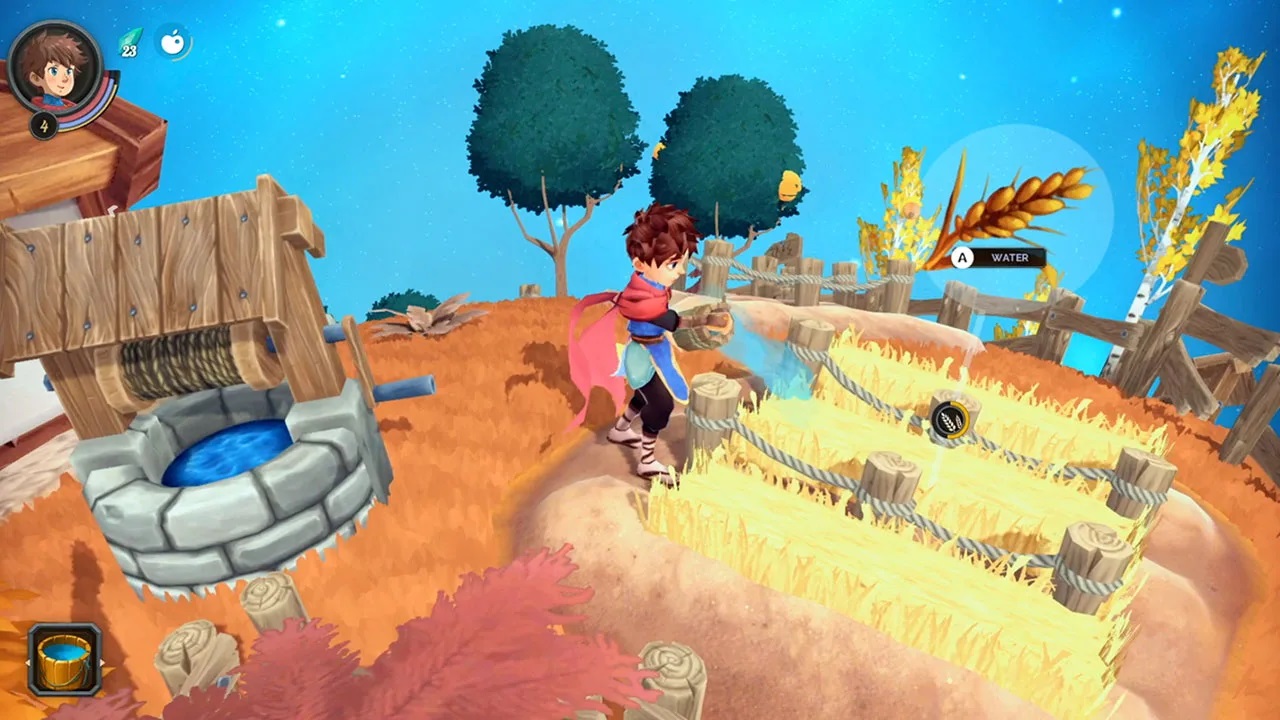
Although the narrative of Deiland is barebones and doesn’t amount to much even by the game’s end, random events can occur in between the day and night cycles where a multitude of characters will land on your planet or you’ll have meteors and the like ramming into areas. An icon at the top of the screen usually indicates how much time you have either for certain quests through the random visits or until something else lands where you’ll have to zoom out to a world review and rotate the planet as needed to place whatever is entering the atmosphere at a desired location, or else structures and areas could be destroyed or visitors will simply not show up. While it’s neat for these events to occur, when you’re focusing on so many other things and trying to make the most of your little planet, the small indicator adds a level of unnecessary stress as there aren’t really any other notifications letting the player know when something is about to happen so it’s just one of those things you have to pay attention to occasionally even though it’s just out of eye level, similar to how much gas a car has left.
Some of these events and visitors can be hugely helpful, though, and with some of them wanting and specializing in certain materials, it can be a bit tedious to constantly wait for them to show up if you have a bunch of stuff you want to sell or buy for crafting purposes. It’s because of this that some quests can take longer than others and become a waiting game more than anything else. Deiland isn’t stressful by any means, but if you’re playing for a few minutes at a time as the game feels like a naturally casual and schedule-flexible experience, having things like that be out of your control can cause for a level of frustration that does tend to take its toll after a while.
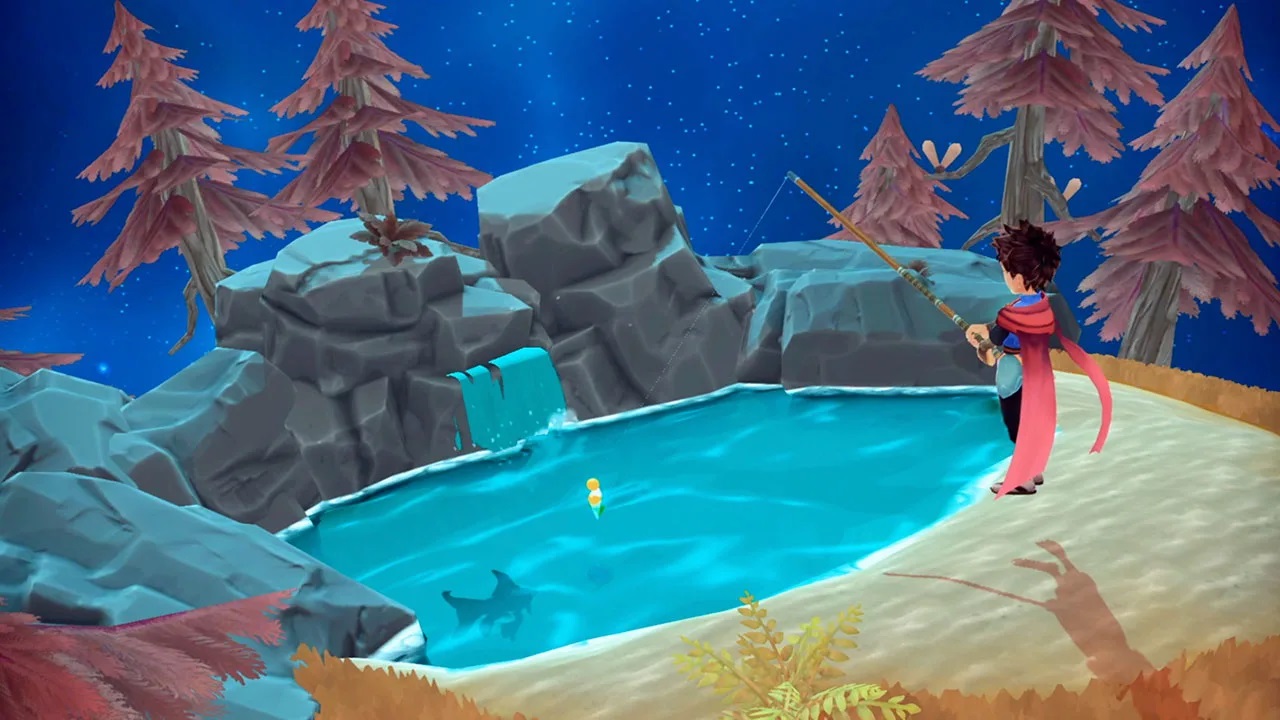
Deiland is about as casual as it can get with minor frustrations, but you can definitely see the mobile roots stick out. The game is not meant for long sessions like, say, Summer in Mara can be, and instead is best enjoyed in short bursts since the repetition will more than likely diminish the overall experience. Despite its serene and almost cathartic experience, however, Deiland ultimately feels like a step back from what we know Chibig as a studio is capable of. It should still undoubtedly be commended that their understanding of the simplicity of crafting and an easy to read UI that’s accessible to anyone and everyone is something I wish was adopted more often so some farming sims that insist on being relaxing don’t feel like as much of a grind and instead simply make sense.
How Deiland mechanically functions is great and innovative, but how it progresses feels like an inconsistent slog, making for a marred time that, while appealing, can feel too shallow at times to really incentivize the need to keep going. Its world is charming, its characters likeable, and aesthetic undoubtedly helps the game stick out from the rest, but its unnecessary combat and strict perspective can cause a strain that hinders any long-term enjoyment. I only wish we had the ability to look more over the shoulder, and though the circular world that rolls as you move isn’t exactly unheard of or unseen before, Deiland exaggerates this more than most, and it almost feels like you’re more of a circus act balancing on a glorified ball as you move more than anything else.
The Verdict
If you’ve played Deiland on mobile in the past or the PC port that followed not long after, Deiland: Pocket Planet Edition doesn’t actually feel that different, and any enhancements or changes are so minor that they’re practically negligible, making this nothing more than an updated name to give it a newer feel for a newer platform. The game is, however, a relaxing experience that doesn’t ask much from the player while running and playing smoothly. At the same time, a bit of game’s age begins to show and you can tell how much Chibig has grown since the launch of Deiland in 2016, even if this is to be considered a 2021 release. Deiland: Pocket Planet Edition is a decent pickup if you’re looking for something extremely simple to pass the time, but the lack of a driving narrative and big enough area to play with will likely cause your time with it to wane fairly quickly.
Review copy provided by the publisher for the purposes of this review.
